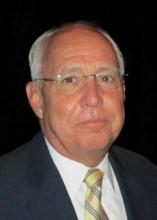In the opinion of Dr. Darrell G. Kirch, physicians who work in academic medical centers are in a unique position to lead health care reform efforts in America.
"We have to do it, because I don’t think there’s anyone else out there," Dr. Kirch, president and CEO of the Association of American Medical Colleges (AAMC), told attendees at the annual meeting of the American College of Psychiatrists. "With all due respect to those of you who are in private practice and small group practice – which will have a real place in the system of the future – the task of redesigning the health care system is going to take new kinds of activity and partnerships between physicians and health care systems unlike anything we’ve seen in the past."
Though AAMC member institutions represent only 6% of all hospitals, he said, they are well represented among the demonstration projects and new health care models being rolled out by the Center for Medicare and Medicaid Innovation. One in five of Medicare accountable care organizations is an AAMC member institution, as are more than two in five health care innovation award grantees, and a third of innovation adviser program members.
"This does not look to me like academic medicine is holding its breath, threatening to do so until it turns blue and not change," said Dr. Kirch, who is trained as a psychiatrist and clinical neuroscientist. "It looks to me like academic medical centers are really engaging in innovations in a serious way."
Further, psychiatrists are poised to be on the frontline of change, because they excel in certain "core competencies," including delivery of patient care that is compassionate, appropriate, and effective; practice-based learning and improvement; interpersonal and communication skills; a sense of professionalism; and experience with systems-based practice, he said.
"I don’t know of any other medical specialty in a better position to take the lead in finding ways to teach these core competencies than psychiatry," Dr. Kirch said. "It’s our responsibility. If we’re passive, I think we could become an endangered species. I think the opposite is true. This is going to take different kinds of leadership from us, not [from] someone else."
– Doug Brunk


